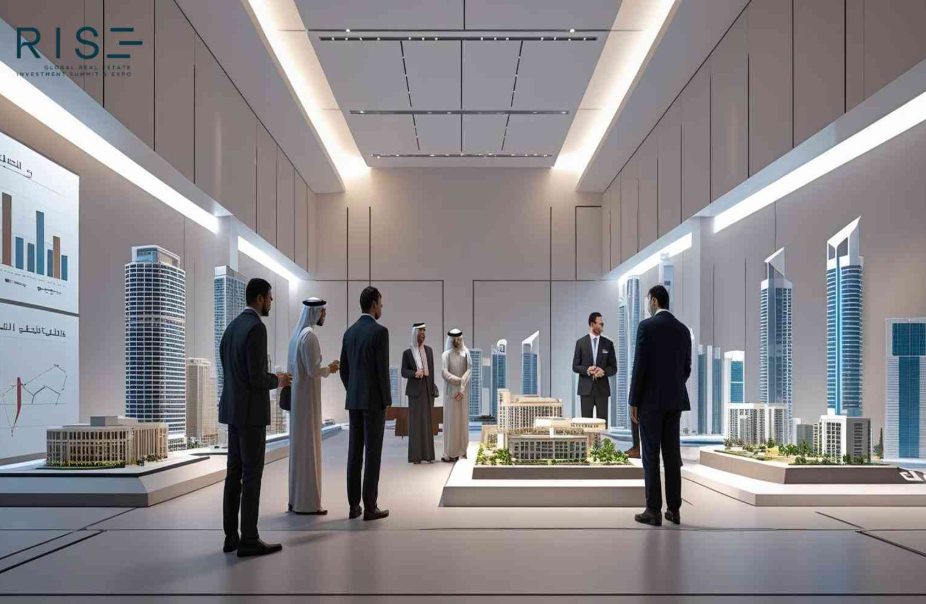Evaluating Innovative Financing Models for Mega Real Estate Developments in the UAE

From towering smart cities to green logistics hubs, mega real estate developments in the UAE are no longer funded by bank loans alone. Instead, developers are embracing diversified capital structures that offer flexibility, broader participation, and resilience.
As traditional models face rising complexity, a new generation of Financing Models, from tokenised real estate to PPP 2.0, is shaping the next wave of Real Estate Development in the region.
Innovative Financing Models for Mega Real Estate Developments in the UAEPublic-Private Partnerships Reimagined
In the UAE, PPPs are no longer just government-meets-private deals. They now include tax incentives, performance guarantees, and hybrid equity structures.
According to Anika Property, Dubai’s PPP market grew from AED 5 billion in 2015 to AED 25 billion in 2023, forecasted to hit AED 45 billion by 2025. These reengineered partnerships have become foundational to real estate financing in large-scale urban developments.
Tokenisation and the Rise of Digital Property SharesThrough a pilot by the Dubai Land Department, investors can now purchase fractional shares of real estate via secure blockchain platforms.
By lowering entry thresholds and increasing liquidity, tokenised real estate financing models reflect the UAE’s move toward inclusive and tech-led property ecosystems.
Shariah-Compliant Fintech: Ethical Meets DigitalIslamic finance continues to expand through tech-driven channels. In a collaboration with Leonteq, Emirates Islamic now offers structured investment products that follow Shariah principles while offering capital protection and equity-linked returns.
This model reflects how Islamic fintech is merging compliance with convenience, broadening access to real estate financing for ethically aligned investors.
Green Capital: Finance Tied to SustainabilityAs ESG mandates rise, real estate financing is increasingly linked to sustainability performance. Developers meeting emissions or energy-efficiency targets benefit from lower rates and longer repayment windows.
This approach is reshaping planning, from how buildings are designed to how they’re sold. Environmental alignment is now a financing advantage.
Crowdfunding at Scale: Mega Backed by MicroOnce reserved for small residential builds, real estate crowdfunding is scaling up. UAE platforms now enable multi-million-dirham developments funded by thousands of contributors.
This model simplifies access to capital, especially for early-stage ventures, while giving investors real-time visibility and flexible participation.
Developer DAOs: Decentralised Capital, Shared ControlPlatforms like HomeCubes are demonstrating how blockchain-based governance tools, known as Developer DAOs, let investors vote on key project milestones.
When paired with institutional capital, these models offer a balance between transparency and structure. DAO-led real estate financing shifts control closer to contributors.
BOT Agreements: Build, Operate, Transfer, RepeatBOT structures, already used in UAE industrial zones, are finding new ground in real estate. Under this model, developers build and manage projects before transferring control.
As outlined by iValuePlus, this method aligns operational excellence with long-term return strategies while reducing upfront risk.
Blended Capital: The New StandardComplex projects demand layered funding. Developers increasingly combine equity, debt, mezzanine finance, and ESG-linked instruments into a single structure.
As Commercial Bank International notes, aligning capital flows with project cash cycles de-risks delivery and maximises agility.
REITs and Real Estate Funds: A Steady HandUAE-based REITs like Emirates REIT and Al Mal Capital REIT offer access to diversified property portfolios with dividend yields.
Driven Properties points to regulatory clarity and tax incentives as key reasons why institutional and retail investors alike are adding REITs to their portfolios.
Matching Models to Scale-
Small-scale projects: Prefer flexible bank loans or crowdfunding.
-
Mid-sized developments: Often use equity-debt mixes and staged disbursements.
-
Mega projects: Rely on blended capital stacks, REITs, or PPPs.
The financing model must align not just with the project size, but also with investor expectations and timelines.
Finance as a Strategic LeverFinancing doesn’t just fund buildings, it shapes them.
Flexible funding allows faster procurement and shorter sales cycles. Conversely, inflexible debt structures may stall timelines or increase costs. Pre-approved lines of credit improve market confidence, while digital-first onboarding boosts outreach.
Conclusion: The Age of Intelligent CapitalIn 2025 and beyond, Financing Models are no longer secondary to location or design. They are core to real estate success.
Whether through tokenisation, Shariah-compliant fintech, or sustainability-linked debt, UAE developers are assembling financing strategies that reduce friction and scale ambition.
As the sector evolves, platforms like RISE are fostering conversations between capital providers, developers, and innovation leaders, helping shape what’s next for real estate in the region.
FAQsQues: What are the safest real estate financing models in 2025?
Ans: Bank loans and REITs, supported by strong regulation and collateral requirements, remain among the most stable options.
Ques: How does real estate crowdfunding differ from REITs?
Ans: Crowdfunding allows direct investment in individual projects; REITs offer a passive route with diversified portfolios.
Ques: Can small developers use real estate crowdfunding effectively?
Ans: Yes, especially for early-stage or niche projects with strong market storytelling.
Ques: What financing models work best in emerging markets?
Ans: PPP and flexible bank credit dominate. Tokenisation and crowdfunding are rising where supported by regulation.
Ques: Are banks still relevant in the age of digital finance?
Ans: Absolutely. Institutional banks remain the foundation for many large-scale builds due to their rigour and trust frameworks.
Ques: Why are alternative financing models becoming more popular?
Ans: They unlock participation, increase flexibility, and align with ESG, decentralised governance, and financial inclusion trends.
)
)
)